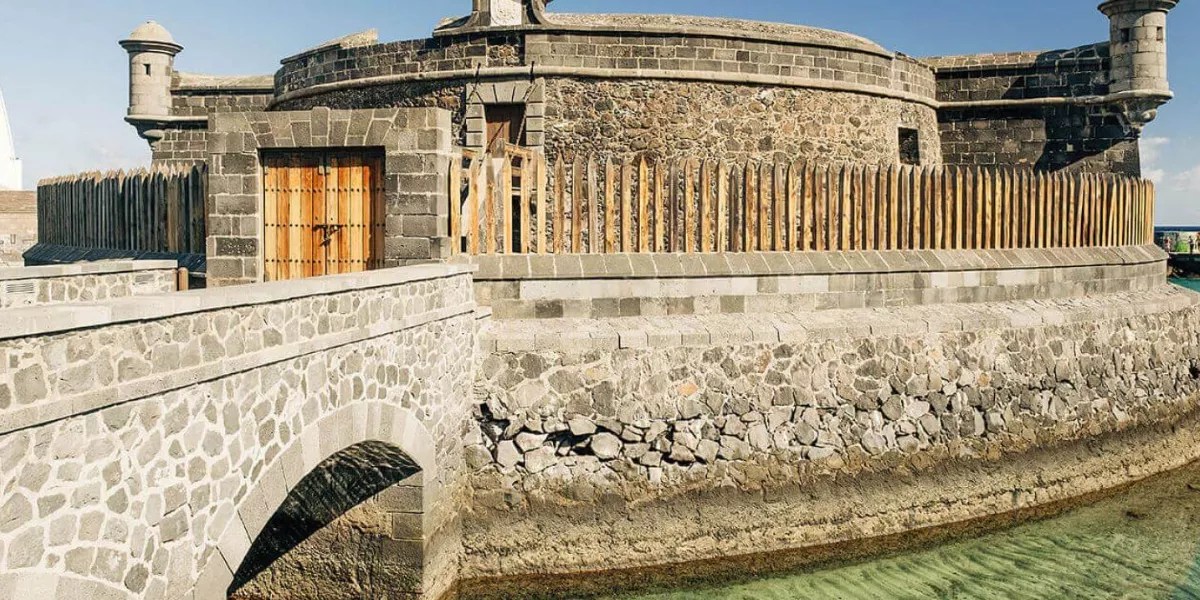On time and immaculately dressed. This is how Lope Afonso, the Vice President of the Tenerife Council, presented himself at the Atlántico Televisión facilities to conduct a challenging interview amidst widespread public dissatisfaction regarding the area he oversees within the island corporation: the Ministry of Tourism, Foreign Action, and Institutional Relations. Just over a month ago, a significant portion of the Canarian population took to the streets for the third time to demand a change in the economic model based on what they consider unsustainable tourism.
Among the 18M demands, the tourist accommodation tax is highlighted, a proposal also made by the Canarian Coalition (CC) – the party governing the Council. What is your party’s stance?
“It’s a clear stance that has been consistently maintained over time. We don’t believe that imposing a tax on overnight stays solves issues of wealth distribution or environmental management, and it doesn’t guarantee exemption for Canarian residents. Our model of tourism taxation involves an intelligent fiscal approach, rigorously applied to areas experiencing congestion and saturation, which may threaten the conservation of high-value natural spaces. Hence, from the Council, we advocate for a tax with this fiscal purpose to provide new services that enhance mobility, conservation, and visitor experience in sensitive areas like Teide National Park, Anaga Biosphere Reserve, and Teno Rural Park.”
Has this caused issues within the government coalition?
“No, not at all. It has been a consensual issue, the latter I just mentioned, to advocate for the tax in natural areas. Naturally, the accommodation tax issue arises within party debates. The Canarian Coalition has reviewed its stance; we addressed it in our congress too. However, our conclusion is that the coherent and timely approach at this moment is to continue with this intelligent fiscal idea linked only to natural area taxes.”
Hoteliers called the nationalists’ proposal a ‘populist notion.’ What is your opinion?
“I’ve always asserted that the accommodation tax – I resist calling it an eco-tax because it isn’t – requires feasibility assessment in legal and timing aspects. It has been proposed as in other regions like the Balearic Islands, Catalonia, or Galicia, but exemption for residents has never been legally justified. If we can’t ensure residents aren’t charged a new tax, we’re not willing to enter this debate as it’s our red line. We’re not a rigid party, willing to consider it, but no proposing party has shown it to be viable, so we see it as a fallacy.”
Experts say in France residents are exempt from this tax. Are you willing to study similar cases?
“If someone demonstrates that in Spanish law that’s possible now, certainly. I insist, we don’t say no to things without reasons. As a jurist, I’ve intensely explored comparative situations to see if it’s possible, and I haven’t found it so far.”
After 18M, your Council area expressed a willingness to meet with the protest organisers to seek balance between residents and tourists. Has this meeting occurred yet?
“Not yet. Soon after, there was a call from some groups at Teide National Park, with an institutional response. After that, we understood this debate can now be handled more calmly. We’ll call the meeting in the coming days, and the Canarian government may join. We hope that with a constructive spirit, sharing measures and proposals, we can address an issue affecting part of the population. Some ongoing initiatives from the administration coincide with certain demands.”
Does the island corporation consider other demands, like the hotel and vacation moratorium?
“That debate was previously addressed in the Canary Islands, and it didn’t contain the increase in spots; instead, it led to numerous compensations to promoters with pending licenses. It requires current reality assessment where there’s still development land within municipal planning. However, conventional accommodation spots in Tenerife today are as many, if not fewer, than before the pandemic in 2019. Visitor growth hasn’t come from added conventional beds but from vacation rentals without a regulatory framework.”
The eco-tax for Masca gorge access recently marked a year, generating 600,000 euros. A model the corporation aims to extend to other areas. The question is: when?
“Our first target was Teide. The plan was postponed as the Canarian government transferred national park management. Another key factor is the final approval of the PRUC (Use and Management Guiding Plans), being negotiated with the regional executive. Once set, we can approve this. The success in Masca gorge gives elements to work parallel in Teno Rural Park and Anaga Biosphere Reserve, rationalising visitor flows, improving conservation, and reducing accidents in gorges.”
Approximately how much would visitors pay?
“The reference might be the Masca gorge fee, but realistically, for vast areas like Teide National Park, the final toll is hard to predict. However, based on chosen services, it might be equal or higher.”

Is there an estimated total revenue if the tax is applied in Teide, Teno, and Anaga? What would it be used for?
“The purpose is clear: conservation and funding new services to ensure better safety, mobility regulation, and especially provide information to help visitors better understand the landscape and biodiversity they witness. It’s yet to be quantified, but legally, the tax revenue must go towards these goals.”
Playa Jardín has reopened after nearly a year closed due to wastewater contamination. Considering the environmental and tourism reputation impact, is a similar incident possible?
“It’s possible, but interventions have minimised the risk. The municipality, responsible for the network, addressed pump station issues, identified as key contamination factors. The Council also implemented tertiary wastewater treatment, reducing effluent and eventually eliminating discharge risk, diminishing long-term emission risk.”
The ‘Stop Discharges to the Sea’ platform, strongly criticising coastal discharges, demands sand cleaning for health risks. What do experts say?
“The municipality plans not only a thorough cleaning but also sanitation of aspects that previously hindered bathing usage, beyond the contamination incident.”
You’ve recently been elected president of the Tenerife PP. How do you approach this new internal stage?
“With great enthusiasm and responsibility. Being unanimously elected increases my commitment to the promises and goals from the congress. We aim to renew the party’s programmatic offer, started with the political presentation discussed at the Congress, and complete the party’s territorial implementation. I truly believe, and do so genuinely, that we can become the most voted political force in Tenerife in the 2027 elections.”
What exactly happened in La Guancha, where a PP mayor resigned, and a councillor of the same party gave majority to a CC mayor?
“It was unfortunate for the PP due to the hasty, unilateral decision by the former mayor, Antonio Hernández, resulting in council votes not aligning, and inexplicably handing another political formation the mayoralty. We lost an opportunity due to personal issues not previously discussed with the party.”
Are there two Popular Parties, one in the Canary Islands supporting the unaccompanied minor migrant decree, and another nationally opposing?
“No, though the Popular Party also has internal debates. We share coherence on key issues from national to local levels, but specific issues like the Canary Islands migration have nuances open to discussion. This has been noted by president Manuel Domínguez, combined with the Canary government signing an agreement with the national PP president, demanding the State implement urgent measures to prevent centre saturation. A court-mandated obligation to house migrant minors as asylum seekers demonstrates the central executive’s approach and attempts to politically influence the Archipelago and divisively affect Canary partners.”
















